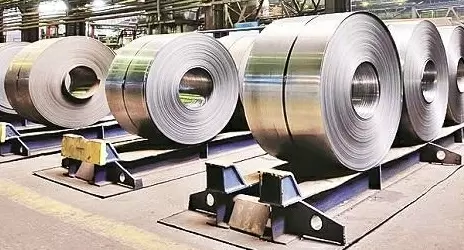Govt mulls making scrap recycling an organised sector
New Delhi
10-March-2021

The Ministry of Mines has recently issued the National Non-Ferrous Metal Scrap Recycling Framework, 2020 covering key non-ferrous metals like Aluminium, Copper, Zinc and Lead.
This framework is also seen to be prepared in the backdrop of the upcoming Vehicle Scrappage Policy for automobiles, which will ensure sufficient availability of domestic scrap in the country.
Some of the key recommendations are setting up of a central authority for recycling of metals as Metal Recycling Authority (MRA). It strongly recommends establishing BIS standards for the quality of scrap used for recycling and recycled products, and standard procedures for recycling and processing of scrap in consonance with MoEFCC rules/guidelines for environment protection.
These recommendations will strengthen efforts of the domestic aluminium industry demanding formulation of standards for scrap in the country. The formulation of BIS standards for scrap usage, recycling & imports will be the first step to develop the domestic recycling ecosystem and promote a circular economy by utilisation of indigenous scrap thereby reducing dependency on imports. Unfortunately, India today, does not have adequate institutional mechanism for proper collection, sorting and processing of domestic or imported scrap. There are no BIS / quality standards in place for scrap and the final recycled products.
As per industry sources, the domestic aluminium industry is facing severe threats from increasing scrap imports, whose share in total aluminium imports increased from 52 per cent in FY16 to 67 per cent in FY21, resulting in Forex outgo- of $2 billion (Rs 14,000 crore).
India has become a scrap dumping ground due to US-China trade war and various Chinese measures to restrict scrap imports through its National Sword Policy. This has diverted the entire global scrap chain towards India as the US dumps huge scrap volume to India resulting in 327 per cent rise in scrap imports from the US in last 5 years, given the stringent standards for scrap followed by the EU and other developed countries.
Watch This TWL Video
The framework also focusses to extend necessary support to promote Research and Development (R&D) in metal scrap recycling while adopting data-based analysis and policy making at all stages of recycling chain. It highlights promotion of '6 Rs' namely, the principles of Reduce, Reuse, Recycle, Recover, Redesign and Remanufacture through scientific handling, processing, and disposal of all types of non-ferrous scrap, through authorised centres. Also importance has been given for creating public awareness about benefits of efficient scrap collection, segregation and recycling with Quality certification mechanism for recycled secondary metal and a 'recycled' logo may be put on all recycled products to highlight circular economy.
The structured plan defines roles and responsibilities with clear timelines for various stakeholders including the Government, Recycling Authority, Public, Manufacturers, Dismantling & Processing Centres to achieve the goal of making an organised recycling industry in the country over the next three years. This includes the setting up of Metal Recycling Authority by Q1-FY22, formulation of Quality Standards, certification, process standards for recycling by Q2/Q3 of FY22. The action plans in FY 2022-23 will be focused for regulating the scrap collection, segregation and dismantling units with a proper framework for registration, review mechanism, data collection and reporting mechanism for registered recycling units, ranking and performance evaluation of recycling units and development of specified metal recycling zones and urban mining facilities.
Expediting all these action plans will be the key for success of Indian recycling industry to encourage efficient utilisation and recycling of indigenous scrap and boost a domestic circular economy. This will create significant opportunities for revenue generation, creation of jobs and MSMEs and encourage domestic value addition in the country in line with greater vision to make an Aatmanirbhar Bharat. - IANS
More Headlines
Cold Wave Grips Rajasthan: Fatehpur Hits 1.1°C, Nagaur 1.7°C
Actor Ajith Kumar Escapes Unharmed After Crash During 24H Dubai Practice
32 Dead As 7.1 Magnitude Earthquake Strikes Nepal-Tibet Border
Human Metapneumovirus Cases in India Rise to 5, Former WHO Expert Urges Calm
Oyo Hotels Tighten Rules on Couple Check-Ins to Ensure 'Safe Hospitality'
Cold Wave Grips Rajasthan: Fatehpur Hits 1.1°C, Nagaur 1.7°C
Actor Ajith Kumar Escapes Unharmed After Crash During 24H Dubai Practice
32 Dead As 7.1 Magnitude Earthquake Strikes Nepal-Tibet Border
Human Metapneumovirus Cases in India Rise to 5, Former WHO Expert Urges Calm
Oyo Hotels Tighten Rules on Couple Check-Ins to Ensure 'Safe Hospitality'










